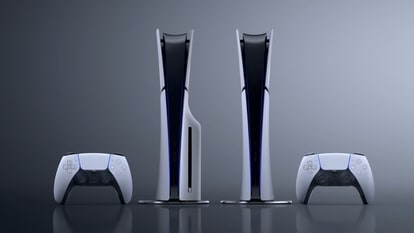Finders of ageing enzyme win Nobel for medicine
Australia-born Elizabeth Blackburn, British-born Jack Szostak and Carol Greider were awarded the Nobel prize for the discovery of a built-in protection device in chromosomes, a finding that sheds light on ageing and may help in the fight against cancer. Facts about winners| Nobel laureates 'thrilled' | Previous US laureates
Three Americans were awarded the Nobel prize for medicine on Monday for the discovery of a built-in protection device in chromosomes, a finding that sheds light on ageing and may help in the fight against cancer.
Australia-born Elizabeth Blackburn, British-born Jack Szostak and Carol Greider won the prize of 10 million Swedish crowns ($1.42 million), Sweden's Karolinska Institute said.
The institute said the three had 'solved a major problem in biology', namely how chromosomes were copied completely during cell division and protected against degradation.
'The discoveries...have added a new dimension to our understanding of the cell, shed light on disease mechanisms, and stimulated the development of potential new therapies,' it said.
At the ends of chromosomes are small caps called telomeres, which prevent the cells from degrading. Blackburn and Greider identified telomerase, an enzyme that forms these caps. Meanwhile, research by Szostak and Blackburn cast light on how the shortening of the caps was linked to ageing.
Merck & Co, for example, is developing a vaccine that targets telomerase under a 2005 license
agreement with US biotech company Geron, with Phase I trials of its so-called therapeutic vaccine under way since last year.
'This has broad medical implications for cancer, certain inherited diseases and for ageing,' said Rune Toftgard, a professor at Karolinska Institutet.
'Follow your nose'
A delighted Greider, who held off from making a statement until she got her children ready for school, said the recognition highlighted the value of discoveries driven by pure curiosity.
'We had no idea when we started this work that telomerase would be involved in cancer, but were simply curious about how chromosomes stayed intact,' she said in a statement.
'What intrigues basic scientists like me is that any time we do a series of experiments, there are going to be three or four new questions that come up when you think you've answered one.
'Our approach shows that while you can do research that tries to answer specific questions about a disease, you can also just follow your nose,' she said.
The three were among those considered likely winners, according to Thomson Reuters yearly forecast.
Goran Hansson, a professor at Karolinska, said he had informed the winners.
'They were at home, all of them, and I was lucky to reach them all. They were a bit sleepy when they got the call, but they were happy,' he said.
Blackburn is with the University of California, San Francisco, Greider is with the Johns Hopkins School of Medicine in Baltimore. Szostak, at Harvard Medical School since 1979, is currently at the Massachusetts General Hospital in Boston.
Medicine is traditionally the first of the Nobel prizes awarded each year. The prizes for achievement in science, literature and peace were first awarded in 1901 accordance with the will of dynamite inventor and businessman Alfred Nobel.
Catch all the Latest Tech News, Mobile News, Laptop News, Gaming news, Wearables News , How To News, also keep up with us on Whatsapp channel,Twitter, Facebook, Google News, and Instagram. For our latest videos, subscribe to our YouTube channel.


























